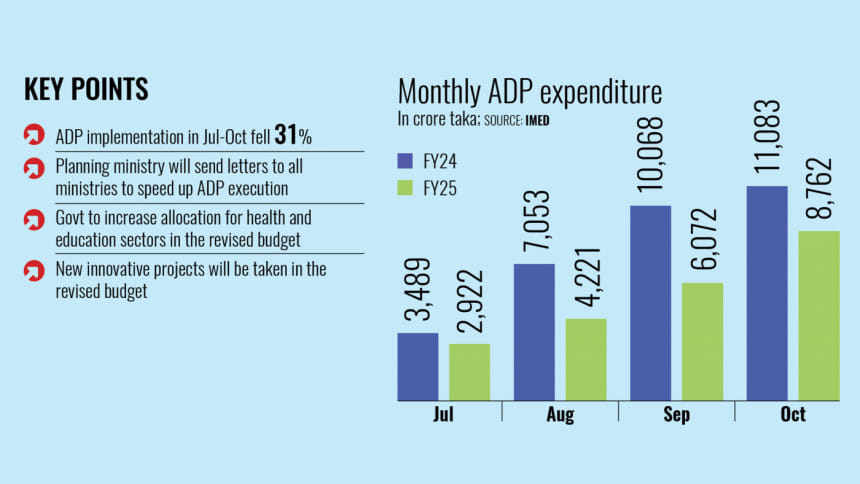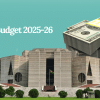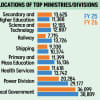Govt to speed up development spending to revive economy

The interim government is going to ask ministries to accelerate the implementation of ongoing development projects, Planning Adviser Prof Wahiduddin Mahmud said, as he believes this would help avert a further economic slowdown.
Citing how the economy is facing turbulence such as political turmoil, labour unrest, expensive loans deterring new investments and stubbornly high inflation, the adviser yesterday said that it was time for policy adjustments.
Emerging from the Executive Committee of the National Economic Council (Ecnec) meeting chaired by Chief Adviser Muhammad Yunus, the planning adviser revealed the decision.
This came a day after the government's Implementation Monitoring and Evaluation Division (IMED) reported at least 14-year low development spending in the July-October period of this fiscal year.
"It is time to shift our focus towards policy adjustments in project implementation," Mahmud told journalists.
While the government previously emphasised project selection and fighting corruption, he said the new directive prioritises the swift execution of ongoing projects by the end of the current fiscal year.
"A letter will be sent from the Planning Commission to all ministries and divisions in this regard," the adviser said.
Private sector is not going for fresh investment, and if the government expenditure also stagnates, it will cause economic downturn.
He said he would personally send demi official (DO) letters to advisers urging them to accelerate the execution of development projects.
Regarding the slow pace of project implementation, Mahmud cited instances of project directors fleeing sites after selling project materials. He mentioned the Matarbari project director as a specific example.
The adviser said the private sector has shown no interest in investment and interest rates have risen sharply. "Consequently, entrepreneurs are reluctant to undertake new ventures right now."
"The private sector is not investing and if the government expenditure too becomes stagnant, it will cause a further slowdown."
Usually, there is a project flow during the tenure of a political government as per the demand from the constituencies. But there are no such scopes for an interim government.
"We don't have constituencies and our time is brief. But obviously we do not have any tendency toward profiting from projects," he added.
He said the government plans to initiate innovative projects in human resources and education development.
"The economy is currently stagnant, with market instability and high inflation," Mahmud said. "Without expanding economic activities, job creation and wage growth will be impeded."
In October, overall inflation reached a three-month high of 10.87 percent due to rising food prices, especially for staples like rice and vegetables.
The adviser hinted at possible cuts to the annual development programme (ADP) allocation, similar to previous years.
However, he suggested that the education and health sectors might receive proportionally higher allocations, especially for educational equipment and scientific research materials.
The planning adviser also said if economic stability is restored, then private sector entrepreneurs would come in large numbers and stimulate growth.
The Ecnec yesterday approved five projects worth a total of Tk 5,915 crore, including one for improving the sewerage system of Chattogram with around Tk 5,152 crore.

 For all latest news, follow The Daily Star's Google News channel.
For all latest news, follow The Daily Star's Google News channel. 








Comments